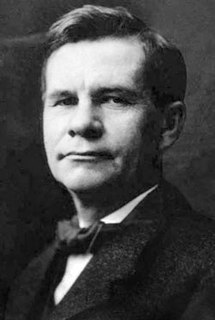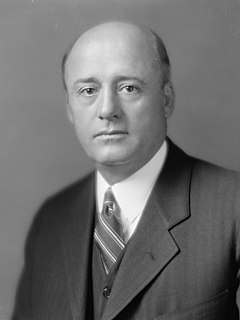A Quote by William Shakespeare
He draweth out the thread of his verbosity finer than the staple of his argument.
Related Quotes
I think women should have what they determine to be a staple in their closet, because who's to say that my staple is someone else's staple? I'm this tall, and I live in this city, and I have to walk the kids to school, and I don't tend to drive as much - my life requirements are radically different than yours or hers or his. Staples are: What do you need? And then, what do you want? "Need" comes first, typically; "want" gets taken care of occasionally.
No Senses stronger than his brain can bear. Why has not Man a microscopic eye? For this plain reason, Man is not a Fly: What the advantage, if his finer eyes Study a Mite, not comprehend the Skies?... Or quick Effluvia darting thro' his brain, Die of a Rose, in Aromatic pain? If Nature thunder'd in his opening ears, And stunn'd him with the music of the Spheres... Who finds not Providence all-good and wise, Alike in what it gives, and what denies?
It should be the privilege of every worker to take advantage of all the improved methods of working that relieve him from the tedium and fatigue of purely mechanical toil, for by this means he gains leisure for the thought necessary to working out his designs, and for the finer touches that the hand alone can give. So long as he remains master of his machinery it will serve him well, and his power of artistic expression will be freed rather than stifled by turning over to it work it is meant to do.
The true man of science will know nature better by his finer organization; he will smell, taste, see, hear, feel, better than other men. His will be a deeper and finer experience. We do not learn by inference and deduction and the application of mathematics to philosophy, but by direct intercourse and sympathy. It is with science as with ethics,--we cannot know truth by contrivance and method; the Baconian is as false as any other, and with all the helps of machinery and the arts, the most scientific will still be the healthiest and friendliest man, and possess a more perfect Indian wisdom.
The more supple vagabond, too, is sure to appear on the least rumor of such a gathering, and the next day to disappear, and go into his hole like the seventeen-year locust, in an ever-shabby coat, though finer than the farmer's best, yet never dressed.... He especially is the creature of the occasion. He empties both his pockets and his character into the stream, and swims in such a day. He dearly loves the social slush. There is no reserve of soberness in him.
place where man laughs, sings, picks flowers, chases butterflies and pets birds, makes love with maidens, and plays with children. Here he spontaneously reveals his nature, the base as well as the noble. Here also he buries his sorrows and difficulties and cherishes his ideals and hopes. It is in the garden that men discover themselves. Indeed one discovers not only his real self but also his ideal self?he returns to his youth. Inevitably the garden is made the scene of man's merriment, escapades, romantic abandonment, spiritual awakening or the perfection of his finer self.






































